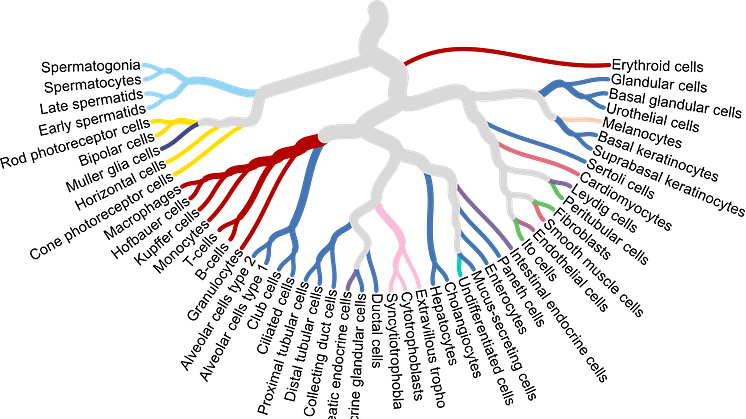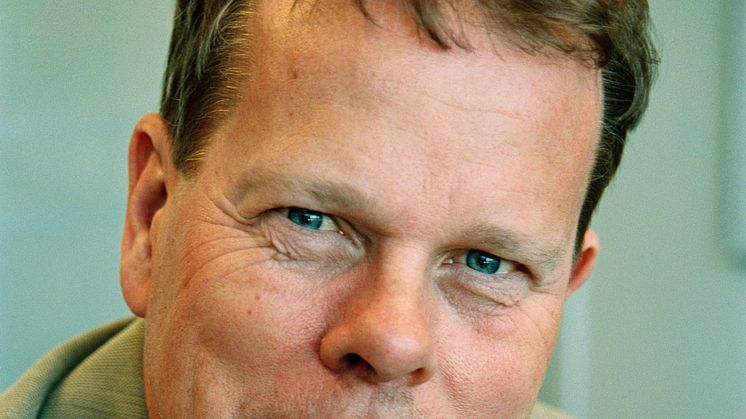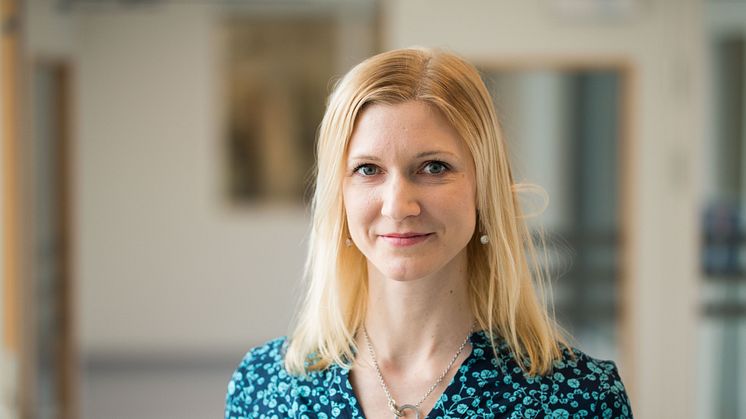
Press release -
A single cell type map of human tissues
In a study published in the US journal Science Advances, a single cell type map of human tissues is presented. An open access atlas has been launched with more than 250,000 interactive plots to allow researchers to explore the expression in individual single cell types for all protein-coding genes in these tissues.
The new knowledge portal has been created as part of the Sweden-based Human Protein Atlas program (www.proteinatlas.org) combining single cell data with antibody-based profiling to allow a holistic cell-, tissue- and organ-wide map of the proteins across the human body to act as a basis for research in human biology and disease.
The dramatic improvements in massive parallel sequencing coupled with single cell sample preparations and data deconvolution have allowed single cell RNA sequencing to become a powerful approach to characterize single cells. In the paper by Karlsson et al, single cell analysis using both RNA sequencing and antibody-based profiling have been combined to create a publicly available map of 192 human cell types.
The analysis highlights distinct expression clusters corresponding to cell types sharing similar functions, both within the same organs and between organs. A classification to map the gene expression profile of all protein-coding genes across the different cell types was performed to determine the number of genes elevated in particular single cell types and thus showing high or low cell type specificity. Across all analyzed cell types, almost 14,000 genes showed an elevated expression in particular cell types, out of which approximately 2,000 genes were found to be specific for only one of the cell types.
Cell types in testis showed the highest numbers of cell type elevated genes, followed by ciliated cells. Interestingly, only 11% of the genes were detected in all analyzed cell types suggesting that the number of essential genes (“house-keeping”) are surprisingly few.
“The paper describes an important addition to the Human Protein Atlas, which has become one of the world’s most visited biological databases, harboring millions of web pages with information about all the human protein-coding genes”, says Mathias Uhlén, Director of the Human Protein Atlas consortium.
“We are excited that the new open access Single Cell Type section constitutes a unique resource for studying the cell type specificity and exact spatial localization of all our proteins”, says Dr Cecilia Lindskog, Head of the HPA Tissue Profiling group.
The work was funded by the Knut and Alice Wallenberg Foundation.
For more information, please contact:
Cecilia Lindskog, Head of the HPA Tissue Profiling group at Uppsala University.Tel: +46 18-471 50 32, +46 70-167 98 93, e-mail: cecilia.lindskog@igp.uu.se
Mathias Uhlen, professor of Microbiology at KTH and director of the Human Protein Atlas consortium. E-mail: mathias.uhlen@scilifelab.se
Publication:
Karlsson et al “A single cell type transcriptomics map of human tissues” Sci. Adv. 7, abh2169 (2021). https://advances.sciencemag.org/content/7/31/eabh2169
Topics
Uppsala University
The first University in Sweden. Quality, knowledge, and creativity since 1477. Education and research of the highest quality and relevance to society, business, and culture. Uppsala University is ranked among the world’s top higher education institutions. www.uu.se


